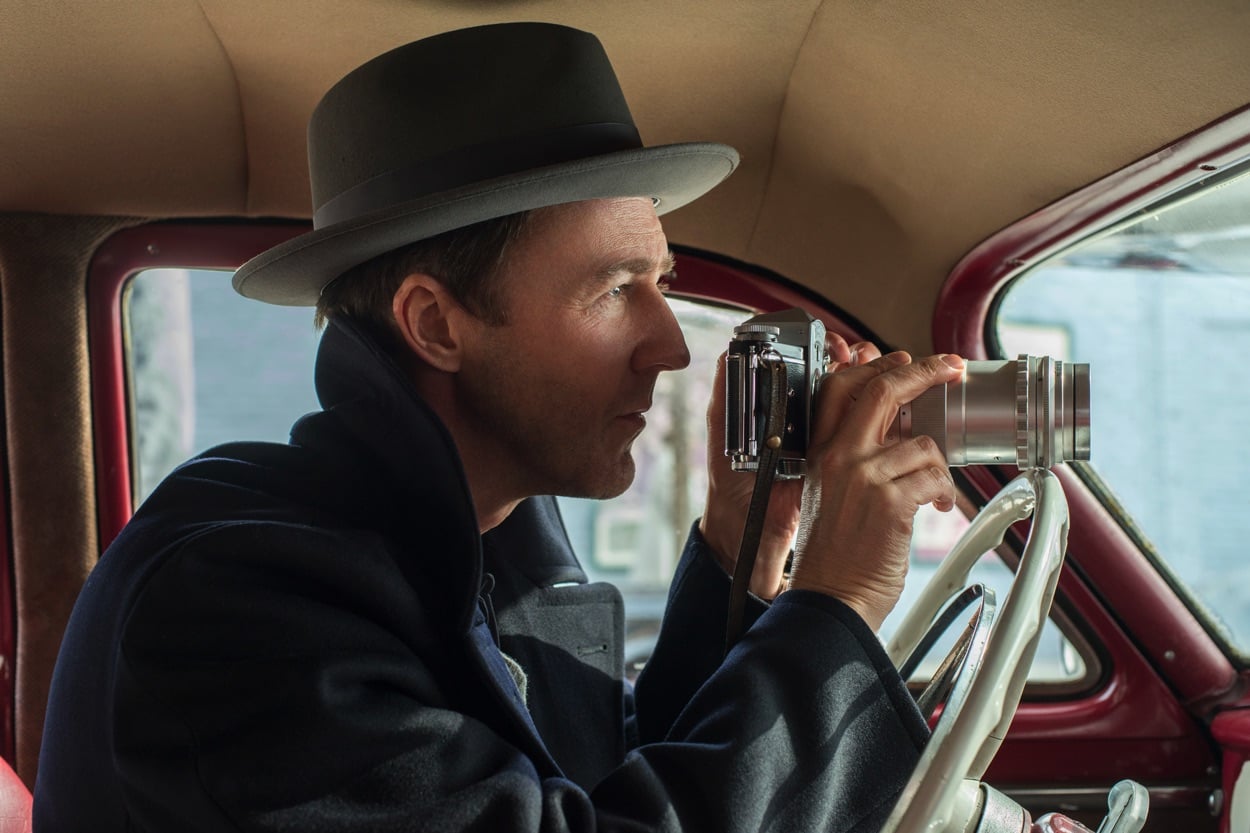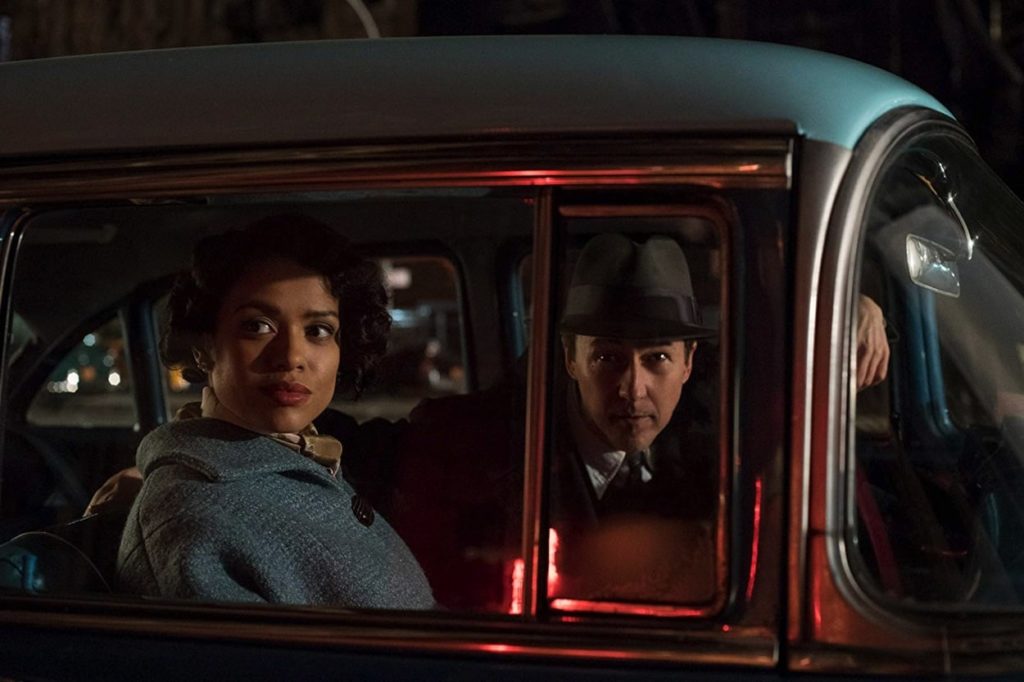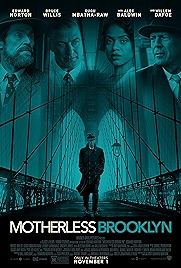Motherless Brooklyn is the first film Ed Norton has directed since 2000’s Keeping the Faith. Oddly, considering Norton is a child of Episcopalians, that also had a connection to Catholicism – a rabbi and a priest fall for the same woman, boom boom. Here the link is the Catholic orphanage where Norton’s Lionel Essrog and his buds grew up, before being rescued by a kindly benefactor (Bruce Willis), who put them all to work in his detective agency.
“Brooklyn” is what Frank (Willis) calls the motherless Lionel but let’s not worry too much about Frank since he dies in the first few minutes, providing the kicking-off point for a whodunit set on mean streets, where guys in hats call each other “mook” and big old Plymouths belly around New York city corners.
Frank is a homage to Bogie and all those guys with their coat collars turned up. And so, it turns out, is Brooklyn, once he gets into the private-eye groove, though a Tourette’s tic marks him out as an unlikely kind of hard-boiled detective. His fellow orphans, now co-workers, are played by Bobby Cannavale, Dallas Roberts and Ethan Suplee and, like Willis, don’t impinge on the plot and action in any real way.
The plot is familiar too. Chinatown, basically, but instead of a to-do about water provision for Los Angeles, the corruption focuses on the redevelopment of New York, where extensive graft and kickbacks oil the wheels of progress epitomised by the figure of city planner Moses Randoph (Alec Baldwin), a character clearly modelled on legendary city planner Robert Moses.
Jonathan Lethem’s original book was published in 1999 and Norton bought the rights back then too. His adaptation (he not only directed and stars but also did the screenplay and is a producer) shunts the action back four decades to the 1950s, allowing him go the full noir – wiseguy voiceover, a Miles Davis-y soundtrack, Raymond Chandler-esque plot diversions, lush cinematography (by Dick Pope) and a femme fatale in the shape of Gugu Mbatha-Raw.
If it’s all a bit “ish”, “esque” and “in the style of”, and there’s a lot of entertainment to be had from genre tick-boxing. The bridges teem with traffic, the streets are full of brownstones decades away from gentrification and Pennsylvania Station turns up at one point as a location because that’s what happens in movies like this.
The Moses Randolph character gets his own subplot – there’s even Cherry Jones playing an anti-Randolph campaigner, an avatar for urban activist Jane Jacobs – but Norton struggles to integrate him with the rest of the film, one grandstanding “so I ripped down a few neighbourhoods but that’s progress” speech notwithstanding.
Robert Moses is so big a figure historically – New York’s bridges and parks are his legacy, he palled about with Donald Trump’s dad, was accused of confusing “slum clearance” with “negro clearance”, as someone in hte film says about Moses Randolph – that he’s an awkward fit in a film that would actually be fine without him. He’s also a more complicated character than there is really time to develop, and Alec Baldwin is caught on the horns of a dilemma about whether to go for caricature or nuance.
Willem Dafoe turns up too, as a kind of urban soothsayer, and is as brilliant as you like in the sort of ranting, intense role that might have been written with a “can we get Willem Dafoe in to do this?” scribbled in the margin. Norton also gets a moment, in scenes with Dafoe, to remind us of those years when he was talked about in terms of being the latest in the Marlon Brando-Robert De Niro-Sean Penn line, though what with all the Tourette’s tics (done brilliantly) he’s closer to Dustin Hoffman.
A bit more poetry in the camera and a ruthless removal of 15 minutes of material by going through every scene and trimming the fat would do this film a world of good. Let’s face it, you need to be at fighting weight to go head to head with the likes of Chinatown or The Big Sleep.
Motherless Brooklyn – Watch it/buy it at Amazon
I am an Amazon affiliate
© Steve Morrissey 2021


